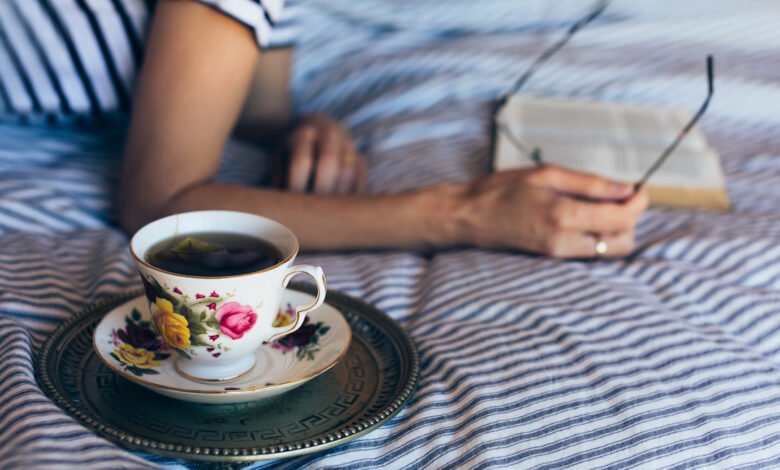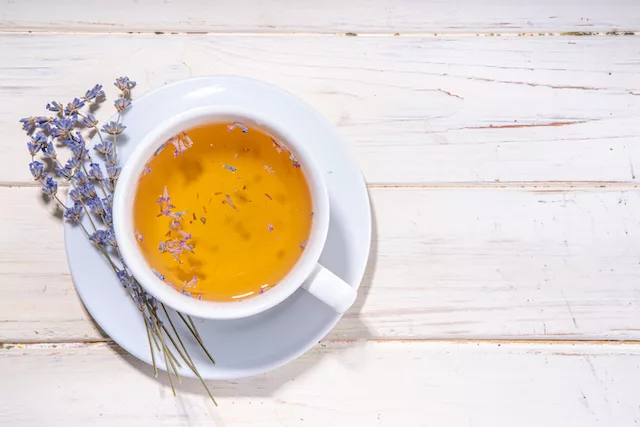Menopause Does WHAT to Your Sleep?!

Menopause is often associated with symptoms like hot flashes and difficulty losing weight. Many women also report that going through menopause has done a number on their typical sleep pattern. Uncomfortable symptoms can make it much more difficult to fall asleep and stay asleep through the night.
Of course, getting enough sleep remains an essential piece of your health and wellness, so addressing barriers is important. Understanding how menopause affects sleep can help you prepare and incorporate habits to set yourself up for success.
Menopause and Sleep: The Connection
Sleep issues become more common as women get older. Evidence suggests that approximately 40-50% of perimenopausal women experience sleep disorders and this number can rise to as high as 60% among postmenopausal women.
Why? Menopause comes with a few of its own specific sleep-disrupting characteristics. Many women experience insomnia, hot flashes, and sleep-disordered breathing that makes it difficult to consistently get rest. And understandably so — nobody rests well when they’re overheating, breathing abnormally, or awake into the wee hours of the night for no apparent reason.
As for the underlying causes, we can mostly blame the fluctuating hormones. Menopause is literally the pausing of the menstrual cycle. During this season of life, your ovaries stop producing estrogen and progesterone. These two hormones are heavily involved in your appetite, mood, sex drive, sleep, body temperature regulation, and even your breathing rate — so no wonder all of these things are affected.
Not getting enough sleep is annoying and impacts every aspect of your life beyond bedtime. Adequate sleep is critical for your ability to focus and think clearly, have the energy to engage in your daily activities, for your immune health, and for your long-term wellness.
Now that you know how menopause affects sleep, what can you do about it? Let’s dive into some potential options.
All-Natural Remedies for Better Sleep
The best approach for improving menopausal sleep is to incorporate consistent everyday habits that may help ease symptom severity.
One way to do this is by incorporating natural remedies. While Western medicine and pharmaceuticals certainly have a place in getting through menopause, natural remedies may help alleviate certain symptoms.
Lifestyle Changes to Improve Sleep
Consider what your typical day-to-day routine looks like and identify some areas where improvements could be made to better support your sleep.
Three of the most impactful lifestyle habits include:
- Exercise: A 2022 review found that exercise intervention can be successful in improving insomnia among menopausal women, especially if you have an existing sleep disorder. Consider what types of activity you enjoy doing and carve out time to move intentionally for at least 30-60 minutes most days. Perhaps a combination of swimming, biking, jogging, walking, group fitness, or tennis.
- Stress management: If you’ve ever tried to go to sleep after a stressful event, you know that calming your mind can feel impossible. Incorporating stress management techniques into your regular routine can help. Keep a journal next to your bed, where you can do a “brain dump” at night and release things you’re worried about. Listening to music, stretching and yoga, meditation, and breathing techniques can also be helpful.
- Sleep environment: To promote a good night’s rest, design a sleep-promoting environment. If you’re experiencing hot flashes at night, have layers on your bed that can easily be removed. Wear something breathable that won’t trap sweat. Consider a white noise machine, fan, or blackout curtains if needed.
Dietary Adjustments
Your diet can also be adjusted to better support sleep during menopause. After all, nutrition is a key component of your mental and physical health. Without the proper nutrients, your body has a harder time keeping you healthy.

Add these sleep-promoting foods to your diet:
- Tart cherry juice, which is high in melatonin, a compound produced in your brain as part of your natural circadian rhythm, and may improve sleep time and efficiency
- Walnuts, which are rich in omega-3 fatty acids that may help promote the production of serotonin, a neurotransmitter involved in sleep and mood
- Fatty fish, which are rich in omega-3s as well as vitamin D, which may help promote serotonin production and support normal sleep
- Kiwis, which may promote serotonin production and are also rich in anti-inflammatory antioxidants like vitamin C that may increase sleep duration and reduce sleep disturbances
- Almonds, which provide magnesium, a mineral involved in relaxation that may also support normal sleep
Staying hydrated is also a critical part of your menopause routine. Your body is around 60% water at any given time, and fluid is regularly lost through normal processes like urination, sweating, and other daily maintenance. It’s important to replenish your fluids for proper temperature regulation and immune function.
If you struggle to stay hydrated, consider these tips:
- Fill a reusable water bottle in the morning to take with you
- If you get bored of plain water, add fresh lemon or cucumber slices for natural flavoring, or try unsweetened seltzer water
- Start your day with a glass of water versus drinking a bunch at night, as the latter may disrupt your sleep due to trips to the bathroom
Herbal Supplements
Many women find that adding herbal supplements to their sleep routine can help them achieve better rest at night. Some of these include:
- Valerian root, which contains an active compound called valerenic acid, which is responsible for its sedative effects
- Lavender, a flowering plant in the mint family that may have anti-anxiety, sedative, and brain-protective properties
- Passionflower, which offers anti-anxiety, sedative, and mood-supportive benefits
- Turmeric, an Indian spice with the bioactive component curcumin, which offers anti-inflammatory and antioxidant effects and supports brain health
Note that herbal supplements aren’t for everyone and can interact with certain medications and other supplements. Speak with your healthcare provider before adding these to your sleep regimen.
Calming Nighttime Drink Recipes
Sometimes, starting your nighttime routine with a warm, soothing beverage can help set you up for better sleep success. Here are three recipes that are not only simple and tasty but also contain ingredients that may help prepare your mind and body for rest.

Herbal Sleep Tea
Ingredients
- 1 tsp dried passionflower
- 1 tsp dried lemon balm
- 1 tsp dried chamomile
- Boiling water
- Optional: honey or other sweetening agent
Preparation
Combine your dried herbs together in a tea ball or reusable tea bag and place it in your mug. Add boiling water to fill your mug and allow your tea to steep for 3-5 minutes or per your liking. Remove your tea bag from the water and gently mix in your desired sweetening. Serve.
Golden Milk
Ingredients
- 1 cup unsweetened plain soy milk
- ½ tsp ground ginger
- ½ tsp ground turmeric
- ½ tsp ground cinnamon
- 1 Tbsp unsweetened cashew butter
- Pinch of black pepper (to help boost the absorption of curcumin from the turmeric)
- Optional: sweetener of choice
Preparation
Combine all of your ingredients in a saucepan and whisk them together while heating over medium heat. Continue to stir gently and heat for 3-5 minutes until well combined and warmed throughout. Serve.
Lavender Chamomile Infusion
Ingredients
- 1 tsp dried chamomile
- ½ tsp dried lavender
- Optional: ½ tsp dried mint, sweetening agent
- Boiling water
Preparation
Combine your dried herbs (and optional mint) in a tea ball or reusable tea bag and place it into your mug. Fill your mug with boiling water. Allow herbs to steep for 3-5 minutes before removing. Add an optional sweetening agent and serve.
Incorporating HUM Products
In addition to products designed to help support your overall health and wellness, HUM also makes some that may be particularly beneficial for menopausal support, like:
Berberine is a plant compound found in things like European barberry and goldenseal. Designed to be taken daily with food, our berberine capsules help support the body’s glucose and fat metabolism for healthy glucose and cholesterol levels*. They contain BioPerine®, a patented piperine derived from black pepper that helps nutrient absorption*. Additionally, berberine supports beneficial bacteria and promotes a healthy gut microbiome.
This daily capsule is an estrogen-free, non-hormonal, clinically studied probiotic formula that addresses 11 symptoms of perimenopause and menopause. It features ingredients like Siberian rhubarb extract to reduce the severity of hot flashes, night sweats, vaginal dryness, fatigue, and irritability, patented probiotics to support the gut-brain axis and mood, and grape seed extract for stress support.
Be sure to consult with your healthcare professional before adding any new supplements to your routine, to ensure that they are safe and appropriate for you.
Rest Easier During Menopause
Sleep is an essential element to your quality of life and everyday health. Unfortunately, getting enough of it on a consistent basis is easier said than done during menopause. When you’re experiencing side effects of such dramatic hormonal changes, like hot flashes, night sweats, and insomnia, it’s difficult to find restful sleep.
The good news is that there are everyday habits and dietary changes that may be helpful. Explore natural remedies and calming drinks to see what helps you. Consider adding a HUM product like Best of Berberine or Fan Club™ to help support your best health and rejuvenation during menopause.
Source link
#Menopause #Sleep



